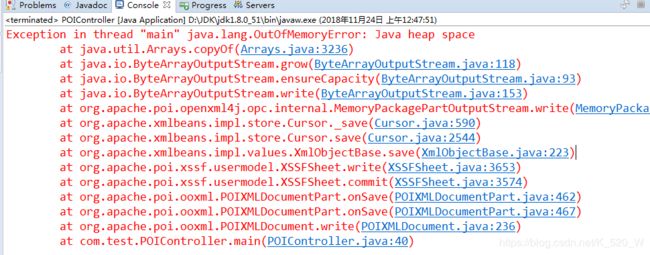- 两种方法判断Python的位数是32位还是64位
sanqima
Python编程电脑python开发语言
Python从1991年发布以来,凭借其简洁、清晰、易读的语法、丰富的标准库和第三方工具,在Web开发、自动化测试、人工智能、图形识别、机器学习等领域发展迅猛。 Python是一种胶水语言,通过Cython库与C/C++语言进行链接,通过Jython库与Java语言进行链接。 Python是跨平台的,可运行在多种操作系统上,包括但不限于Windows、Linux和macOS。这意味着用Py
- android ndk 开发jni调用对象方法,数组参数
wulongkou
开发问题安卓的事ndkandroidstudiojni
一、JNI和NDK关系JNI是Java语言提供的Java和C/C++相互沟通的机制,Java可以通过JNI调用本地的C/C++代码,本地的C/C++的代码也可以调用java代码。JNI是本地编程接口,Java和C/C++互相通过的接口。Java通过C/C++使用本地的代码的一个关键性原因在于C/C++代码的高效性。NDK是一系列工具的集合。它提供了一系列的工具,帮助开发者快速开发C(或C++)的动
- java 动态多态性_Java语言中动态多态性的实现及应用
阿野与阿厉
java动态多态性
科技信息1.引言多态性(polymorphism)一词来源于拉丁语poly(表示多的意思)和mor-phos(意为形态),其字面的含义是多种形态。在面向对象系统中,多态性是其核心内容之一,反映了人们在求解问题时,对相似性问题的一种求解方法。Java语言实现了两种多态性:静态多态性和动态多态性。本文重点论述其采用重写机制实现动态多态性的原理,并结合实例讲解动态多态性的应用。2.关于多态的概念2.1继
- 2.Jmeter安装配置,核心目录详情,组件和作用域
XXX-17
Jmeterjmeter软件测试接口测试
一、Jmeter安装配置以及核心目录详情Jmeter基于java语言来开发,java需要jdk环境。1.安装jdk并且配置jdk的环境变量。2.jmeter只需要解压就可以使用了。3.在D:\apache-jmeter-5.5\bin目录下双击jmeter.bat文件就可以启动使用了backups:自动备份的目录bin:启动文件、配置文件(jmeter.bat是启动问题,jmeter.propti
- Java 学习路线:语言、框架、中间件与数据库
高危型
java
Java是一门功能强大、应用广泛的编程语言,适用于企业级应用、Web开发、大数据处理、Android开发等各种场景。这里为大家介绍了一下我认为较为合适的学习路线一、Java基础1.1Java语言基础1.1.1安装JDK和IDE安装JDK:下载JDK:访问Oracle官网,下载最新的JavaDevelopmentKit(JDK)。安装JDK:按照操作系统要求安装JDK并配置环境变量。Windows上
- Java 入门基础篇05 - Java的关键字
仔仔 v1.0
Java基础java开发语言intellij-idea
什么是关键字?就是被java语言赋予特殊含义的单词。关键字的特点组成关键的字母都是小写。常见关键字class,public,static,void.....。关键字注意事项goto和const是java语言的保留字,关键字在IDEA编译器中有明确的颜色变化。关键字列表ABSTRACTCONTINUEFORNEWSWITCHassertdefaultgotopackagesynchronizedbo
- JAVA之接口
java萌新小白
接口接口的概述电脑上面的主板有很多接口,比如内存条的接口,有了这个接口,可以插入多个内存条,主板和内存条可能不是同一家生产厂商,但是两种物体却能结合到一起,正是因为这个接口的存在。只要厂家遵循这个接口,主板和内存条就可以随意更换,提高了可插拔性,接口其实也是体现着一种规范。在java语言里面使用interface来声明一个接口,接口其实是一个特殊的抽象类,在接口里面的方法全部都是抽象的。关于接口,
- JVM---内存管理
Wangwq.
八股文JVM
JVM是一种用于计算设备的规范,他是一个虚构的计算机。是通过在实际的计算机上的仿真模拟各种计算机的功能来实现的。引入java虚拟机后,java语言在不同的平台上运行时不需要重新编译,运行字节码即可。五大内存区域1、方法区(1)所有线程共享的内存区域(2)用于存储已被虚拟机加载的类信息、常量、静态常量等。如:被static修饰的常量(3)方法区中的信息来源于类装载子系统,其加载class信息(4)这
- Java语言程序设计与数据结构(基础篇)课后练习题 第十一章 (一)
2401_85111725
java数据结构python
publicStringtoString(){return"Triangle:side1="+s1+"side2="+s2+"side3="+s3;}}11.2=================================================================packagedishiyizhang;publicclassdishiyizhang{publicstati
- java的socket实现一个九宫棋游戏
睡不醒的小泽
前言一个简单的socket小作品=v=一个机酱在大三实验课中接触到很基础的JAVA语言socket编程。至于你问为什么嵌入式的机酱会弄些Java吗?emmmmm,可能是当初C语言版的不够好玩吧,另外如果碰巧有用,欢迎抱走的yoo在之前的笔记《网络基础知识和网络编程》中有讲解过关于网络编程的一些基本知识,以及一些LinuxC的socket编程,希望粗浅了解socket内部肌理的同学,右转咱的学习笔记
- 驾驶理论考试网上模拟系统的设计与实现论文
忧郁的西红柿
驾驶理论论文javatomcatspringmaven
摘要驾驶理论考试是每个驾驶员都必须通过的一项重要考试,而为了更好地备考驾驶理论考试,开发一套网上模拟系统变得至关重要。这种系统可以提供模拟真实考试场景,帮助考生更好地了解考试形式和题型,提升备考效率。本文旨在设计和实现一套驾驶理论考试网上模拟系统,以提供给考生一个方便、高效、真实的模拟考试环境。开发技术主要包括MySQL、SSM框架和Java语言。MySQL用于存储系统所需的各种数据,包括考试题目
- Java初级学习路线概要~
艾伦~耶格尔
Java初级java学习开发语言intellij-ideajdk
前言如果你刚刚开始学习Java,掌握基础知识是关键。本文将提供一个详细的Java初级学习路线,帮助各位看官从基础开始,逐步掌握Java编程语言的核心概念。1.Java语言基础1.1Java简介-**Java介绍**:Java是一种广泛使用的编程语言,以其跨平台特性和面向对象设计而著名。-**应用场景**:Web应用、桌面应用、移动应用等。1.2环境搭建**安装JDK**:从[Oracle官网](h
- Java语言程序设计基础篇_编程练习题18.24 (将十六进制数转换为十进制数)
2301_78998594
第十八章-Java基础篇习题java开发语言学习
题目:18.24(将十六进制数转换为十进制数)编写一个递归方法,将一个字符串形式的十六进制数转换为一个十进制数。方法头如下:publicstaticinthex2Dec(StringhexString)编写一个测试程序,提示用户输入一个十六进制字符串,然后显示等价的十进制数。代码示例编程练习题18_24ConvertHexadecimalToDecimal.javapackagechapter_1
- JDBC使用及源码编译
openGauss小助手
openGauss技术分享数据库database
1.JDBC简介JDBC是JavaDataBaseConnectivity的缩写,它是Java程序访问数据库的标准接口。JDBC接口是Java标准库自带的,具体的JDBC驱动是由数据库厂商提供的,JDBC驱动也是由Java语言编写的,为一个jar包,真正实现JDBC接口中的类。openGauss数据库源自postgres,openGaussJDBC以PostgreSQLJDBCDriver42.2
- Java反射语法
精进攻城狮@
java开发语言
1.反射1.1反射的概述【理解】反射机制是在运行状态中,对于任意一个类,都能够知道这个类的所有属性和方法;对于任意一个对象,都能够调用它的任意属性和方法;这种动态获取信息以及动态调用对象方法的功能称为Java语言的反射机制。1.2获取Class类对象的三种方式【应用】三种方式分类类名.class属性对象名.getClass()方法Class.forName(全类名)方法示例代码publicclas
- java
bb54676a07b6
Java语言提供了八种基本类型。六种数字类型(四个整数型,两个浮点型),一种字符类型,还有一种布尔型。byte:byte数据类型是8位、有符号的,以二进制补码表示的整数;最小值是-128(-2^7);最大值是127(2^7-1);默认值是0;byte类型用在大型数组中节约空间,主要代替整数,因为byte变量占用的空间只有int类型的四分之一;例子:bytea=100,byteb=-50。short
- 卡片(结果填空)String.valueOf( int number)
hhXx_琉璃
java开发语言蓝桥杯算法
这个问题可以通过编程来解决。基本思路是,从数字1开始尝试拼下一个数,每次尝试都消耗对应数字卡片,直到无法拼出下一个数为止。下面是一个使用Java语言实现的示例代码:publicclassCardNumberPuzzle{publicstaticvoidmain(String[]args){//初始化卡片数量int[]cards=newint[10];for(inti=0;i<10;i++){car
- java计算机毕业设计Vue潍坊学院宿舍管理系统设计与实现MyBatis+系统+LW文档+源码+调试部署
一梵sheji288
javamybatisvue.js
java计算机毕业设计Vue潍坊学院宿舍管理系统设计与实现MyBatis+系统+LW文档+源码+调试部署java计算机毕业设计Vue潍坊学院宿舍管理系统设计与实现MyBatis+系统+LW文档+源码+调试部署本源码技术栈:项目架构:B/S架构开发语言:Java语言开发软件:ideaeclipse前端技术:Layui、HTML、CSS、JS、JQuery等技术后端技术:JAVA运行环境:Win10、
- Java学习路线
纣王家子迎新
javajava学习
一、Java基础阶段Java语言基础:数据类型与变量:了解Java中的基本数据类型(如int、float、double等)和引用数据类型,掌握变量的声明、初始化和使用。运算符与表达式:学习Java中的算术运算符、关系运算符、逻辑运算符等,以及它们的使用规则和优先级。流程控制:掌握条件语句(if-else)、循环语句(for、while、do-while)和跳转语句(break、continue
- 深入理解Java虚拟机:Jvm总结-类文件结构以及类加载机制
Ty_1106
JVMjavajvm开发语言
第六章类文件结构6.1意义代码编译的结果从本地机器码转变为字节码,冲破了平台界限。6.2无关性的基石实现语言无关性的基础仍然是虚拟机和字节码存储格式。Java虚拟机不与包括Java语言在内的任何程序语言绑定,它只与“Class文件”这种特定的二进制文件格式所关联。6.3Class类文件的结构任何一个Class文件都对应着唯一的一个类或接口的定义信息,但是反过来说,类或接口并不一定都得定义在文件里(
- 基于Java毕业设计新锐台球厅管理系统源码+系统+mysql+lw文档+部署软件
练练科技
java课程设计mysql
基于Java毕业设计新锐台球厅管理系统源码+系统+mysql+lw文档+部署软件基于Java毕业设计新锐台球厅管理系统源码+系统+mysql+lw文档+部署软件本源码技术栈:项目架构:B/S架构开发语言:Java语言开发软件:ideaeclipse前端技术:Layui、HTML、CSS、JS、JQuery等技术后端技术:JAVA运行环境:Win10、JDK1.8数据库:MySQL5.7/8.0源码
- java计算机毕业设计高校学生资助管理信息系统源码+mysql数据库+系统+lw文档+部署
鸿源网络
数据库mysqljava
java计算机毕业设计高校学生资助管理信息系统源码+mysql数据库+系统+lw文档+部署java计算机毕业设计高校学生资助管理信息系统源码+mysql数据库+系统+lw文档+部署本源码技术栈:项目架构:B/S架构开发语言:Java语言开发软件:ideaeclipse前端技术:Layui、HTML、CSS、JS、JQuery等技术后端技术:JAVA运行环境:Win10、JDK1.8数据库:MySQ
- 基于JAVA高校毕业就业管理系统计算机毕业设计源码+数据库+lw文档+系统+部署
源新网络
java开发语言
基于JAVA高校毕业就业管理系统计算机毕业设计源码+数据库+lw文档+系统+部署基于JAVA高校毕业就业管理系统计算机毕业设计源码+数据库+lw文档+系统+部署本源码技术栈:项目架构:B/S架构开发语言:Java语言开发软件:ideaeclipse前端技术:Layui、HTML、CSS、JS、JQuery等技术后端技术:JAVA运行环境:Win10、JDK1.8数据库:MySQL5.7/8.0源码
- synchronized锁状态和底层实现
码了三年又三年
java开发语言
锁的状态无锁状态,偏向锁状态,轻量级锁状态,重量级锁状态。锁的状态是通过对象监视器在对象头中的字段来表明的,四种状态会随着竞争的情况逐渐升级。偏向锁、轻量级锁、重量级锁是针对synchronized的状态。这四种状态都不是Java语言中的锁,而是JVM为了提高锁的获取与释放效率而做的优化(使用synchronized时)无锁:没有任何线程使用锁对象。偏向锁:当前只有一个线程访问,在对象头MarkW
- Java虚拟机是如何执行线程同步的
莫生人
在网上看到一篇老外的文章(原文地址:HowtheJavavirtualmachineperformsthreadsynchronization),介绍了线程同步相关的几个基础知识点。所以想把它翻译一下给大家看看。相信大家看过这些基础知识之后再看synchronized的原理就会好理解一点。了解Java语言的人都知道,Java代码要想被JVM执行,需要被转换成由字节码组成的class文件。本文主要来
- java基础知识
阿拉伯的劳伦斯292
java开发语言
1.java简介跨平台性:Java语言的“一次编写,到处运行”特性是这一语言的重要优势,java程序编译成字节码,可以在安装了Java虚拟机(JVM,javavirtualmachine)的不同操作系统上运行面向对象:java是一门完全的面向对象编程语言,支持继承,抽象,封装和多态的特性内存管理:java通过垃圾回收器(GarbageCollector)自动管理内存,这就不用开发者手动释放内存了,
- Java面试题--JVM大厂篇之深入了解Java虚拟机(JVM):工作机制与优化策略
青云交
Java大厂面试题Java技术栈Java虚拟机(JVM)专栏javajvm开发语言工作机制与优化策略JVM的基本工作原理JVM性能优化策略JVM调优实例
引言:Java虚拟机(JavaVirtualMachine,简称JVM)是Java程序员绕不开的主题。作为Java语言的执行平台,JVM不仅为Java程序提供了平台无关性,还承担了内存管理、线程管理和垃圾回收等复杂任务。了解JVM的工作机制和优化策略,对于提升Java应用的性能具有重要意义。正文:一、JVM的基本工作原理要理解JVM,我们首先需要了解它的基本工作原理。JVM在运行时负责将Java字
- Java技术:2024年开发者必须了解的10个要点
青云交
java开发语言编程语言微服务架构
摘要:随着技术的不断发展,Java语言和其生态系统也在不断演进。本文旨在为Java开发者总结2024年必须掌握的关键技术点和最佳实践。1.浅谈Java语言基础与面向对象编程(OOP)简介Java语言的基础和面向对象的核心概念,强调它们在构建复杂系统中的重要性。2.深入了解Java技术栈评述常用的Java技术栈及其优势,引导开发者合理选择适合项目的技术组合。3.JavaEE框架的探索之旅分析和比较不
- Java异常机制01:初识异常
耳东er
#Java异常机制java
一、什么是异常什么是异常:程序执行过程中的不正常情况异常的作用:增强程序的健壮性java提供异常处理机制有什么用:——Java语言是很完善的语言,提供了异常的处理方式,程序在执行过程中出现了不正常情况,Java把该异常信息打印输出到控制台,供程序员参考。程序员看到异常信息之后,可以对程序进行修改,让程序更加健壮。异常指程序运行中出现的不期而至的各种状况,如:文件找不到、网络连接失败、非法参数等异常
- Java课程设计——简易计算器
代码前哨站
java课程设计开发语言eclipseide
1.系统简介1.1设计背景随着人们物质生活水平的日益提高,人们对高质量的计算提出了更高的要求。当今世界,是云计算的生活和物联网发展和使用阶段,计算性能的高低和计算的效率直接影响到了人们的生活。对此,使用Java语言开发出一个为人们生活带来便利的计算器,主要完成对数据的高效计算。该系统实现了加、减、乘、除的四则运算。1.2开发工具及环境(1)开发工具及介绍Eclipse是Java集成开发环境(IDE
- Java 并发包之线程池和原子计数
lijingyao8206
Java计数ThreadPool并发包java线程池
对于大数据量关联的业务处理逻辑,比较直接的想法就是用JDK提供的并发包去解决多线程情况下的业务数据处理。线程池可以提供很好的管理线程的方式,并且可以提高线程利用率,并发包中的原子计数在多线程的情况下可以让我们避免去写一些同步代码。
这里就先把jdk并发包中的线程池处理器ThreadPoolExecutor 以原子计数类AomicInteger 和倒数计时锁C
- java编程思想 抽象类和接口
百合不是茶
java抽象类接口
接口c++对接口和内部类只有简介的支持,但在java中有队这些类的直接支持
1 ,抽象类 : 如果一个类包含一个或多个抽象方法,该类必须限定为抽象类(否者编译器报错)
抽象方法 : 在方法中仅有声明而没有方法体
package com.wj.Interface;
- [房地产与大数据]房地产数据挖掘系统
comsci
数据挖掘
随着一个关键核心技术的突破,我们已经是独立自主的开发某些先进模块,但是要完全实现,还需要一定的时间...
所以,除了代码工作以外,我们还需要关心一下非技术领域的事件..比如说房地产
&nb
- 数组队列总结
沐刃青蛟
数组队列
数组队列是一种大小可以改变,类型没有定死的类似数组的工具。不过与数组相比,它更具有灵活性。因为它不但不用担心越界问题,而且因为泛型(类似c++中模板的东西)的存在而支持各种类型。
以下是数组队列的功能实现代码:
import List.Student;
public class
- Oracle存储过程无法编译的解决方法
IT独行者
oracle存储过程
今天同事修改Oracle存储过程又导致2个过程无法被编译,流程规范上的东西,Dave 这里不多说,看看怎么解决问题。
1. 查看无效对象
XEZF@xezf(qs-xezf-db1)> select object_name,object_type,status from all_objects where status='IN
- 重装系统之后oracle恢复
文强chu
oracle
前几天正在使用电脑,没有暂停oracle的各种服务。
突然win8.1系统奔溃,无法修复,开机时系统 提示正在搜集错误信息,然后再开机,再提示的无限循环中。
无耐我拿出系统u盘 准备重装系统,没想到竟然无法从u盘引导成功。
晚上到外面早了一家修电脑店,让人家给装了个系统,并且那哥们在我没反应过来的时候,
直接把我的c盘给格式化了 并且清理了注册表,再装系统。
然后的结果就是我的oracl
- python学习二( 一些基础语法)
小桔子
pthon基础语法
紧接着把!昨天没看继续看django 官方教程,学了下python的基本语法 与c类语言还是有些小差别:
1.ptyhon的源文件以UTF-8编码格式
2.
/ 除 结果浮点型
// 除 结果整形
% 除 取余数
* 乘
** 乘方 eg 5**2 结果是5的2次方25
_&
- svn 常用命令
aichenglong
SVN版本回退
1 svn回退版本
1)在window中选择log,根据想要回退的内容,选择revert this version或revert chanages from this version
两者的区别:
revert this version:表示回退到当前版本(该版本后的版本全部作废)
revert chanages from this versio
- 某小公司面试归来
alafqq
面试
先填单子,还要写笔试题,我以时间为急,拒绝了它。。时间宝贵。
老拿这些对付毕业生的东东来吓唬我。。
面试官很刁难,问了几个问题,记录下;
1,包的范围。。。public,private,protect. --悲剧了
2,hashcode方法和equals方法的区别。谁覆盖谁.结果,他说我说反了。
3,最恶心的一道题,抽象类继承抽象类吗?(察,一般它都是被继承的啊)
4,stru
- 动态数组的存储速度比较 集合框架
百合不是茶
集合框架
集合框架:
自定义数据结构(增删改查等)
package 数组;
/**
* 创建动态数组
* @author 百合
*
*/
public class ArrayDemo{
//定义一个数组来存放数据
String[] src = new String[0];
/**
* 增加元素加入容器
* @param s要加入容器
- 用JS实现一个JS对象,对象里有两个属性一个方法
bijian1013
js对象
<html>
<head>
</head>
<body>
用js代码实现一个js对象,对象里有两个属性,一个方法
</body>
<script>
var obj={a:'1234567',b:'bbbbbbbbbb',c:function(x){
- 探索JUnit4扩展:使用Rule
bijian1013
java单元测试JUnitRule
在上一篇文章中,讨论了使用Runner扩展JUnit4的方式,即直接修改Test Runner的实现(BlockJUnit4ClassRunner)。但这种方法显然不便于灵活地添加或删除扩展功能。下面将使用JUnit4.7才开始引入的扩展方式——Rule来实现相同的扩展功能。
1. Rule
&n
- [Gson一]非泛型POJO对象的反序列化
bit1129
POJO
当要将JSON数据串反序列化自身为非泛型的POJO时,使用Gson.fromJson(String, Class)方法。自身为非泛型的POJO的包括两种:
1. POJO对象不包含任何泛型的字段
2. POJO对象包含泛型字段,例如泛型集合或者泛型类
Data类 a.不是泛型类, b.Data中的集合List和Map都是泛型的 c.Data中不包含其它的POJO
- 【Kakfa五】Kafka Producer和Consumer基本使用
bit1129
kafka
0.Kafka服务器的配置
一个Broker,
一个Topic
Topic中只有一个Partition() 1. Producer:
package kafka.examples.producers;
import kafka.producer.KeyedMessage;
import kafka.javaapi.producer.Producer;
impor
- lsyncd实时同步搭建指南——取代rsync+inotify
ronin47
1. 几大实时同步工具比较 1.1 inotify + rsync
最近一直在寻求生产服务服务器上的同步替代方案,原先使用的是 inotify + rsync,但随着文件数量的增大到100W+,目录下的文件列表就达20M,在网络状况不佳或者限速的情况下,变更的文件可能10来个才几M,却因此要发送的文件列表就达20M,严重减低的带宽的使用效率以及同步效率;更为要紧的是,加入inotify
- java-9. 判断整数序列是不是二元查找树的后序遍历结果
bylijinnan
java
public class IsBinTreePostTraverse{
static boolean isBSTPostOrder(int[] a){
if(a==null){
return false;
}
/*1.只有一个结点时,肯定是查找树
*2.只有两个结点时,肯定是查找树。例如{5,6}对应的BST是 6 {6,5}对应的BST是
- MySQL的sum函数返回的类型
bylijinnan
javaspringsqlmysqljdbc
今天项目切换数据库时,出错
访问数据库的代码大概是这样:
String sql = "select sum(number) as sumNumberOfOneDay from tableName";
List<Map> rows = getJdbcTemplate().queryForList(sql);
for (Map row : rows
- java设计模式之单例模式
chicony
java设计模式
在阎宏博士的《JAVA与模式》一书中开头是这样描述单例模式的:
作为对象的创建模式,单例模式确保某一个类只有一个实例,而且自行实例化并向整个系统提供这个实例。这个类称为单例类。 单例模式的结构
单例模式的特点:
单例类只能有一个实例。
单例类必须自己创建自己的唯一实例。
单例类必须给所有其他对象提供这一实例。
饿汉式单例类
publ
- javascript取当月最后一天
ctrain
JavaScript
<!--javascript取当月最后一天-->
<script language=javascript>
var current = new Date();
var year = current.getYear();
var month = current.getMonth();
showMonthLastDay(year, mont
- linux tune2fs命令详解
daizj
linuxtune2fs查看系统文件块信息
一.简介:
tune2fs是调整和查看ext2/ext3文件系统的文件系统参数,Windows下面如果出现意外断电死机情况,下次开机一般都会出现系统自检。Linux系统下面也有文件系统自检,而且是可以通过tune2fs命令,自行定义自检周期及方式。
二.用法:
Usage: tune2fs [-c max_mounts_count] [-e errors_behavior] [-g grou
- 做有中国特色的程序员
dcj3sjt126com
程序员
从出版业说起 网络作品排到靠前的,都不会太难看,一般人不爱看某部作品也是因为不喜欢这个类型,而此人也不会全不喜欢这些网络作品。究其原因,是因为网络作品都是让人先白看的,看的好了才出了头。而纸质作品就不一定了,排行榜靠前的,有好作品,也有垃圾。 许多大牛都是写了博客,后来出了书。这些书也都不次,可能有人让为不好,是因为技术书不像小说,小说在读故事,技术书是在学知识或温习知识,有
- Android:TextView属性大全
dcj3sjt126com
textview
android:autoLink 设置是否当文本为URL链接/email/电话号码/map时,文本显示为可点击的链接。可选值(none/web/email/phone/map/all) android:autoText 如果设置,将自动执行输入值的拼写纠正。此处无效果,在显示输入法并输
- tomcat虚拟目录安装及其配置
eksliang
tomcat配置说明tomca部署web应用tomcat虚拟目录安装
转载请出自出处:http://eksliang.iteye.com/blog/2097184
1.-------------------------------------------tomcat 目录结构
config:存放tomcat的配置文件
temp :存放tomcat跑起来后存放临时文件用的
work : 当第一次访问应用中的jsp
- 浅谈:APP有哪些常被黑客利用的安全漏洞
gg163
APP
首先,说到APP的安全漏洞,身为程序猿的大家应该不陌生;如果抛开安卓自身开源的问题的话,其主要产生的原因就是开发过程中疏忽或者代码不严谨引起的。但这些责任也不能怪在程序猿头上,有时会因为BOSS时间催得紧等很多可观原因。由国内移动应用安全检测团队爱内测(ineice.com)的CTO给我们浅谈关于Android 系统的开源设计以及生态环境。
1. 应用反编译漏洞:APK 包非常容易被反编译成可读
- C#根据网址生成静态页面
hvt
Web.netC#asp.nethovertree
HoverTree开源项目中HoverTreeWeb.HVTPanel的Index.aspx文件是后台管理的首页。包含生成留言板首页,以及显示用户名,退出等功能。根据网址生成页面的方法:
bool CreateHtmlFile(string url, string path)
{
//http://keleyi.com/a/bjae/3d10wfax.htm
stri
- SVG 教程 (一)
天梯梦
svg
SVG 简介
SVG 是使用 XML 来描述二维图形和绘图程序的语言。 学习之前应具备的基础知识:
继续学习之前,你应该对以下内容有基本的了解:
HTML
XML 基础
如果希望首先学习这些内容,请在本站的首页选择相应的教程。 什么是SVG?
SVG 指可伸缩矢量图形 (Scalable Vector Graphics)
SVG 用来定义用于网络的基于矢量
- 一个简单的java栈
luyulong
java数据结构栈
public class MyStack {
private long[] arr;
private int top;
public MyStack() {
arr = new long[10];
top = -1;
}
public MyStack(int maxsize) {
arr = new long[maxsize];
top
- 基础数据结构和算法八:Binary search
sunwinner
AlgorithmBinary search
Binary search needs an ordered array so that it can use array indexing to dramatically reduce the number of compares required for each search, using the classic and venerable binary search algori
- 12个C语言面试题,涉及指针、进程、运算、结构体、函数、内存,看看你能做出几个!
刘星宇
c面试
12个C语言面试题,涉及指针、进程、运算、结构体、函数、内存,看看你能做出几个!
1.gets()函数
问:请找出下面代码里的问题:
#include<stdio.h>
int main(void)
{
char buff[10];
memset(buff,0,sizeof(buff));
- ITeye 7月技术图书有奖试读获奖名单公布
ITeye管理员
活动ITeye试读
ITeye携手人民邮电出版社图灵教育共同举办的7月技术图书有奖试读活动已圆满结束,非常感谢广大用户对本次活动的关注与参与。
7月试读活动回顾:
http://webmaster.iteye.com/blog/2092746
本次技术图书试读活动的优秀奖获奖名单及相应作品如下(优秀文章有很多,但名额有限,没获奖并不代表不优秀):
《Java性能优化权威指南》


